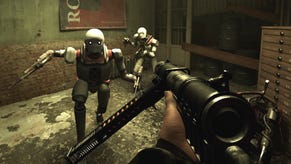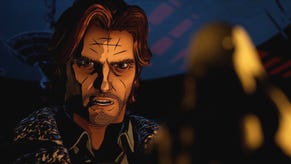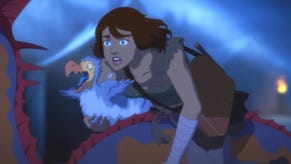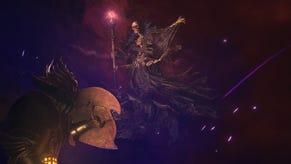2K Games boss says photorealism aids diversity, Notch disagrees
Can games do nuanced emotion like Brokeback Mountain yet?
2K Games boss Christoph Hartmann has gone and said something controversial. He's declared that only when games approach photorealistic graphics will they be able to broaden their genre-horizon and properly do nuanced emotion like Brokeback Mountain - rather than the Mission Impossible experiences we get today.
Here's what he said to GamesIndustry International.
"Recreating a Mission Impossible experience in gaming is easy; recreating emotions in Brokeback Mountain is going to be tough, or at least very sensitive in this country... It will be very hard to create very deep emotions like sadness or love, things that drive the movies. Until games are photorealistic, it'll be very hard to open up to new genres. We can really only focus on action and shooter titles; those are suitable for consoles now.

"To dramatically change the industry to where we can insert a whole range of emotions, I feel it will only happen when we reach the point that games are photorealistic; then we will have reached an endpoint and that might be the final console."
Not everyone agrees - Minecraft maker and indie champion Notch in particular, who spoke out against Hartmann on Twitter.
"No, Christoph, you LIMIT the number of new genres if you focus on photorealism."
Markus "Notch" Persson, creator, Minecraft
"No, Christoph," he wrote, "you limit the number of new genres if you focus on photorealism."
"I had way more emotions playing Proteus than I ever did playing any 2K game."
"Also, Futurama has made me feel sad more than most sad movies can.
"The Sting, Jurrasic Bark, Luck of the Fryish. Photorealistic? No."
Hartmann's comments are also likely to rankle with the likes of David Cage, Peter Molyneux and BioWare - high profile game makers that chased (or are chasing) emotional gaming this generation.
Making a photorealistic game will also presumably be very expensive - big teams, big production values. For many observers, cost has been the main stifler of creative risk this generation. Publishers play it safe in order to guarantee that they'll make their money back.
Are we to believe that that will change when, next-generation, blockbuster game development becomes that much more expensive again?
Is it not more likely, as in film, to be the low budget and therefore relatively carefree indie scene that provides emotional poignancy? To The Moon is but one great example of this.









